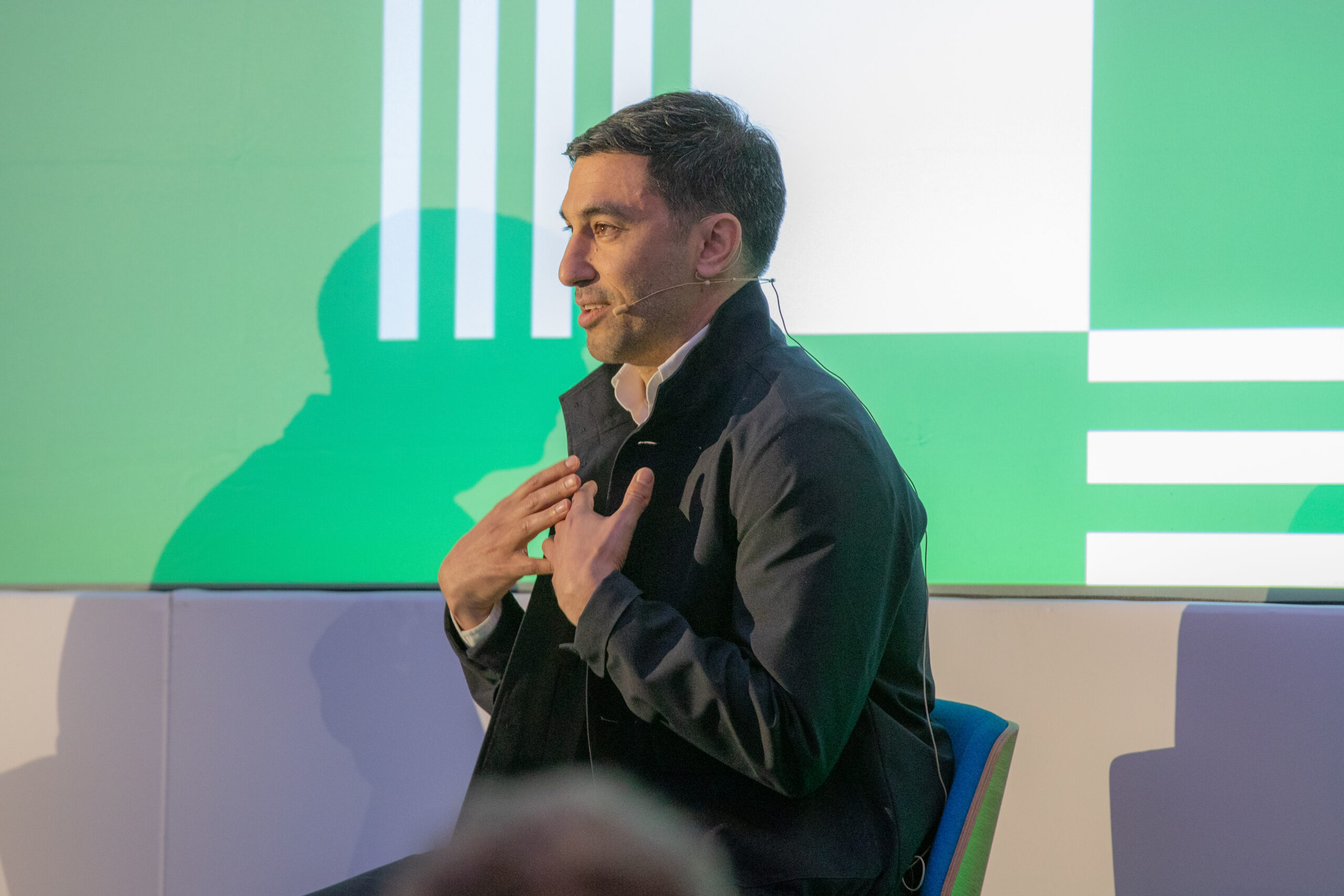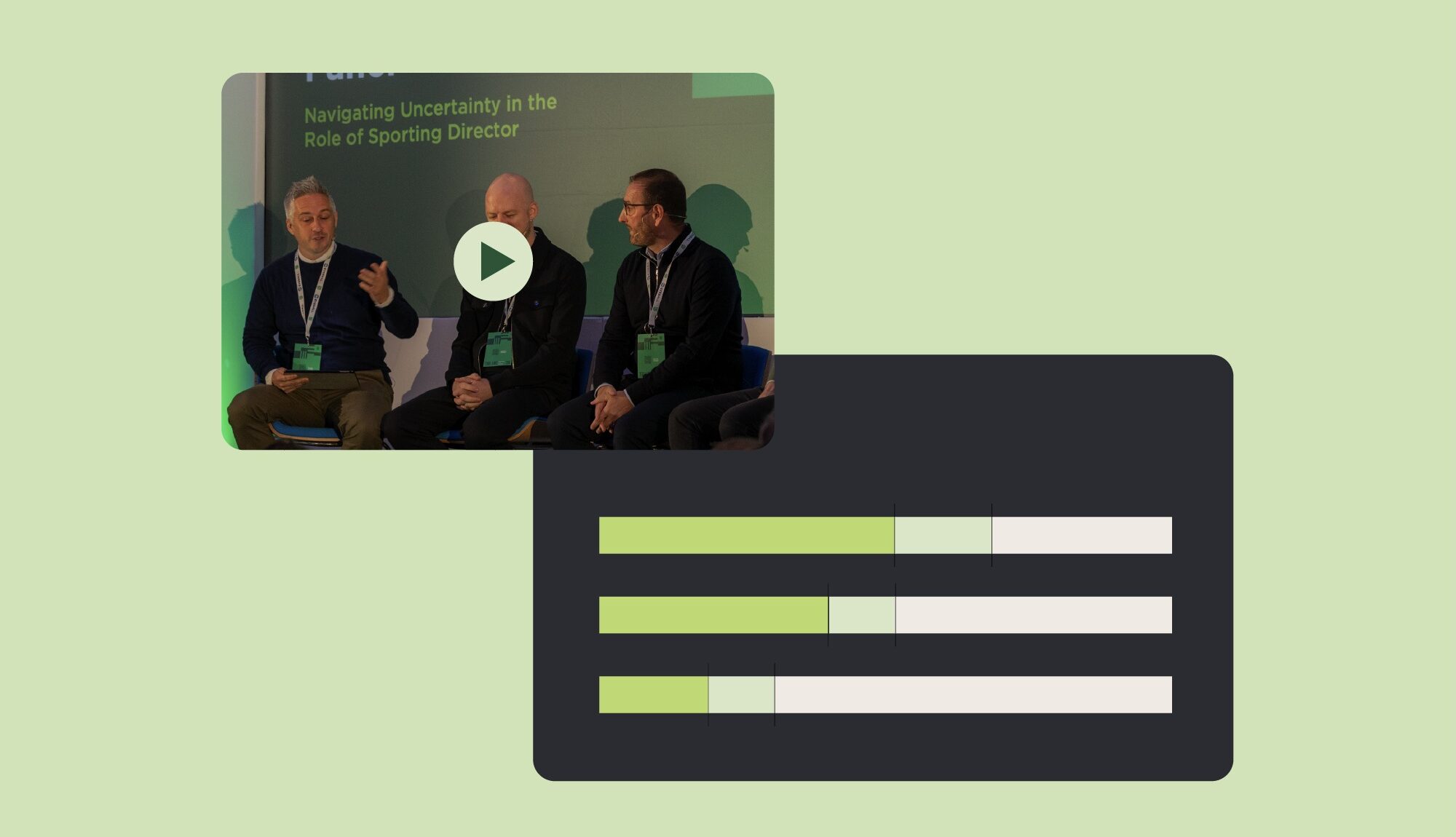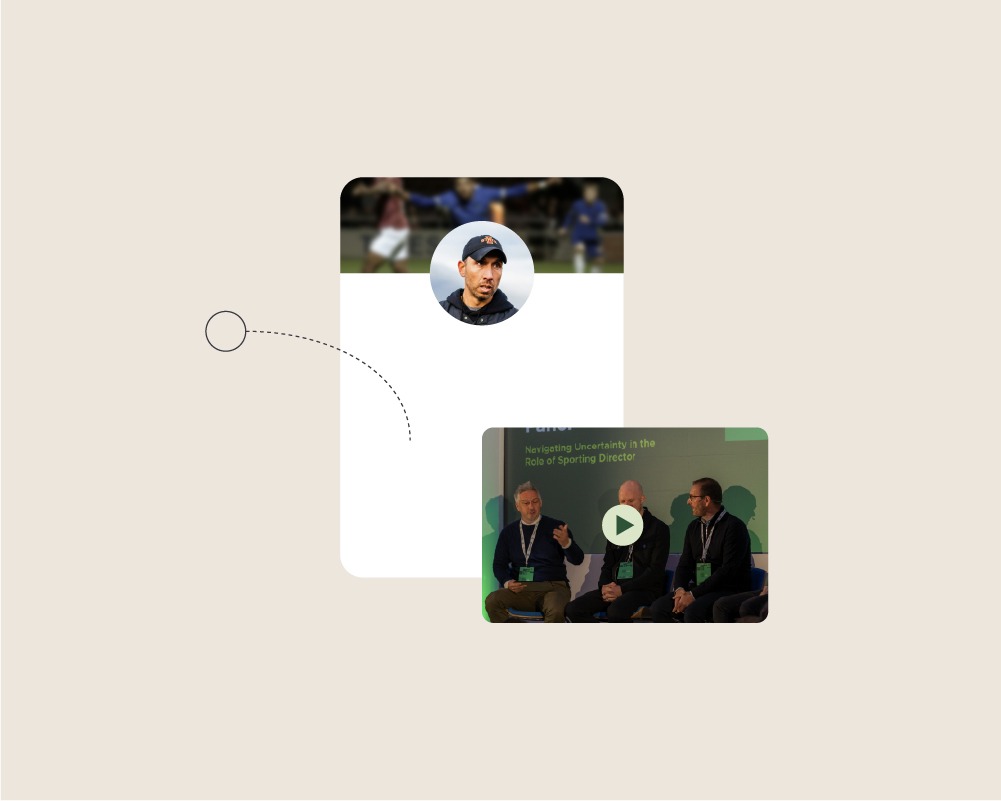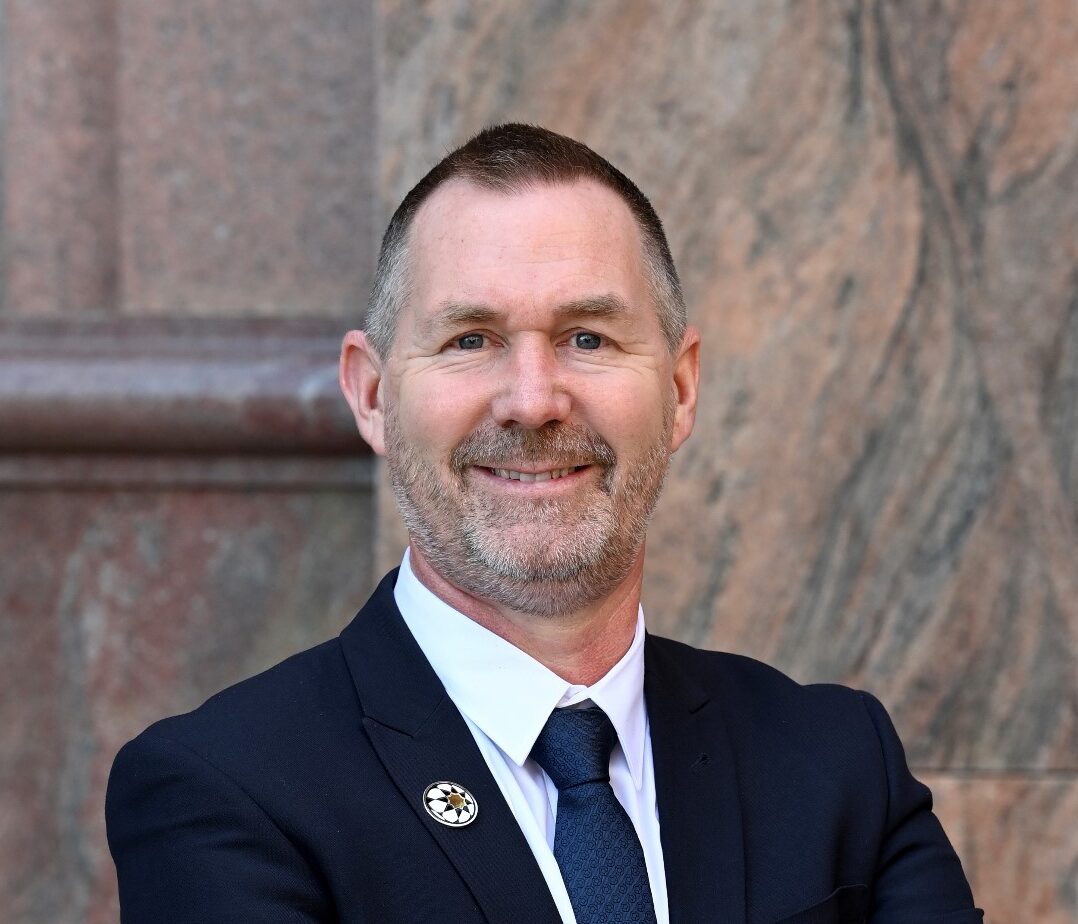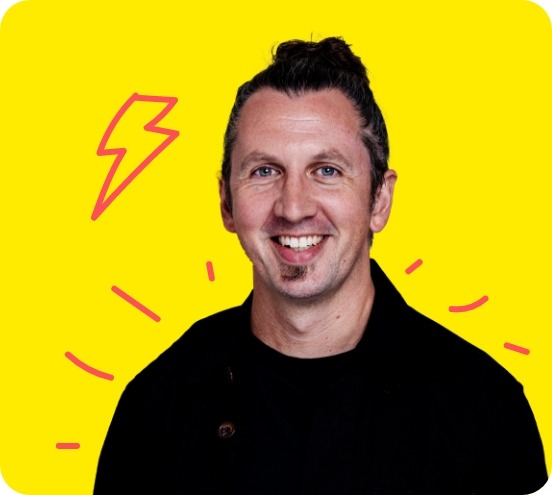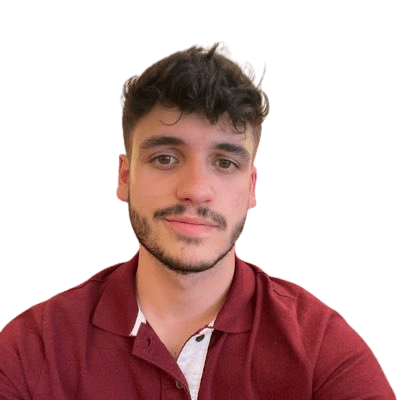Written by
Simon Austin
January 13, 2025
Twenty years ago, Danny Karbassiyoon scored against Manchester City on his first-team debut for Arsenal and dreamt about becoming a star for the Gunners. The American has indeed gone on to become a pivotal person for the North London club, though not in a way anyone had foreseen back then.
Karbassiyoon, 40, is Arsenal’s Head of Football Platforms, responsible for developing tools that can enhance the club’s performance both on and off the pitch.
TGG Members can watch this session plus the others from TGG Live. Find out all the Benefits of becoming a TGG Member by clicking below.
Speaking at TGG Live, in a Q&A with Headline Sponsor Teamworks, Karbassiyoon described his team as “the mini start-up within the club”. He explained that the usual working process was for him to ask other members of staff within the wider football department, “What problems do you have?” Then he and his team would work out, “what can we potentially automate, how can we make your lives easier,” before “finding the shortest route to providing value to solving that problem.”
TGG Members are able to watch Karbassiyoon’s full Q&A session with Gareth Quinn from Teamworks – and the other presentations from our industry-leading conference – in the TGG Members area.
Until January 31st, we have a special INTRODUCTORY OFFER for new TGG Members of £9.99 for three months or £29.99 for a whole year! (Usual price is £24.99 for three months and £99.99 for a year).
Karbassiyoon added: “To me, one of the biggest problems in sport is that we rely so much on technology, but we are not technology companies ourselves. If you go to big tech companies, they might have 10, 20, 30, hundreds of devs just sitting on the sideline waiting for ideas to build cool products.
“As football clubs, we don’t have that. Very few have a developer on site who can just build internal tools for them. The first thing I set out to do was just centralise everything. That is a big problem a lot of football clubs – and businesses in general – struggle with. Data will be all over different places and having to log into different places to access stuff.”
Karbassiyoon joined Arsenal as a player in 2003 at the age of 18. He played three games for them and went on to represent Ipswich and Burnley before injury forced his premature retirement at just 22. After that he scouted the Americas for them for seven years, before setting up his own mobile gaming company called SWOL in 2012.
With a friend, he raised $2m, moved the company to London, built the workforce and led product development. Five years later he returned to Arsenal as a part-time scout and this is when he realised how his newly-found knowledge could help the club.
“I noticed our tech had some inefficiencies essentially,” Karbassiyoon told Gareth Quinn of Teamworks at TGG Live. “I ended up pitching to leadership at the time. Edu had just started as Sporting Director and I had played with him when he was at Arsenal, so was comfortable at going into the room and asking him, ‘What are your biggest pain points as a Technical Director?’
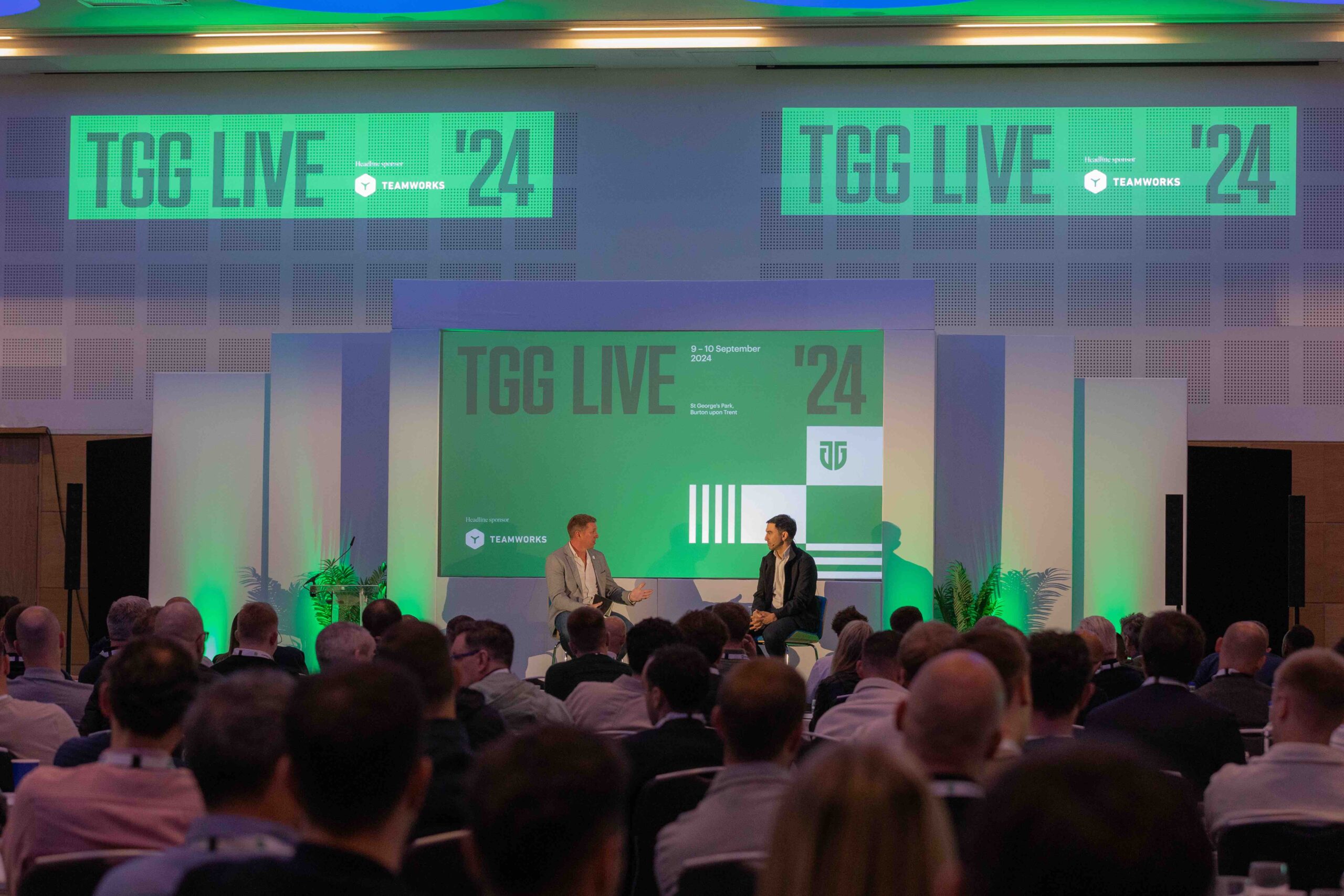
Gareth Quinn and Danny Karbassiyoon at TGG Live
“I was just listening and trying to understand where I could solve some problems with tech. I pitched the club on building a new in-house recruitment platform and they said I could have maybe six months and a little bit of resource to do it. I set out to building something that I as a scout would have enjoyed using that would have made my time in front of a screen, reporting and searching players and finding fixtures, just way more efficient.
“I launched that and we sunset our old scouting platform. About a year and a half later I get another knock on the door from our Head of Performance (Tom Allen), who asked if we could do the same thing on the performance side basically, centralising all the information into one place so we could make decisions more intelligently and much faster.”
Karbassiyoon said one of the big questions for clubs is whether to buy or build tools. This is especially important when, as he says, football clubs don’t have the development resource that other industries and companies do.
“In the tech world, build versus buy is a huge debate at times,” he said. “I’m sure you guys (in the audience) are getting pitched a lot on lots of products that will move the needle even further.
“I knew the club wanted to have some bespoke workflows and test various ways we internally work that were a little bit different from what was available in the market, so that’s why we started building our own internal scouting platform.
“But when you’re looking for example to organise all your medical information – we as a club use (Teamworks) AMS – we didn’t need to go out and build an entire new medical tool. We use a pre-existing tool out there that’s battle tested. We tend to check to see if you can connect to it through an API.
“As the data landscape continues to get bigger and bigger, it’s getting more challenging for humans to actually make a decision on something."
Danny Karbassiyoon
“If we can get the information, we can bring it in-house and blend it with other data, visualise it however we want and go from there. That’s probably the most powerful side of this – we can still use a bunch of very popular products that are on the market but then bring them all in-house and make way faster decisions than having to log in somewhere, see data in isolation, then log in somewhere else and try to download CSVs and blend Excel sheets together.
“We can do that all in-house now.”
Karbassiyoon said clubs now have a huge quantity of data and information and that the holy grail for football is being able to streamline decision-making.
“As the data landscape continues to get bigger and bigger, and there’s more information and data sources, it’s getting more challenging for humans to actually make a decision on something, because of all the information available,” he said.
“We are working on solutions now to figure how we can make that decision making much faster and easier. The landscape for data and technology in sport just continues to get more fragmented, it’s chaotic.
“We just want to make sure we are in a really good place, so that no matter what either product or new data source we bring in, we just ingest it into our environment and we can build on top of that, so no matter where technology goes, the foundational work we have done with our technology will allow us to be as agile as we can be.”
TGG Members are able to watch this full session, plus the others from TGG Live. Click for more.
Follow Us
For latest updates, follow us on X at @ground_guru
